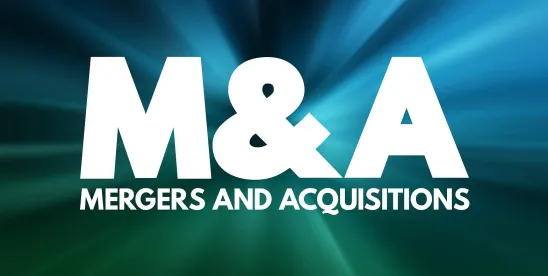What Happened: The Federal Trade Commission, with the Antitrust Division of the Department of Justice, issued a Final Rule that makes significant changes to the premerger notification rules implementing the Hart-Scott-Rodino (HSR) Act. The changes expand the nature and extent of disclosures required in premerger filings. The new rules will become effective 90 days after publication in the Federal Register, with an expected effective date in January 2025. The FTC also announced that once the new rules go into effect, it will lift its categorical suspension of early termination.
The Bottom Line: The new rules will significantly increase the time, burden and expense associated with transactions that require an HSR filing. On average, the FTC estimates an additional 68 hours will be required to prepare a filing. The new rules also introduce uncertainty around the level of detail that will be required on certain new elements in the filing that call for a narrative response, such as descriptions of the ownership structure, transaction rationale and overlaps. As regulators begin to review filings under the new rules next year, additional guidance should identify and clarify expectations.
The Full Story: The new rules are the product of a lengthy process that began last year. On June 29, 2023, the FTC published a Notice of Proposed Rulemaking outlining major changes to the premerger notification form and instructions. An extended comment period brought in over 700 comments, and the agencies later suggested in public statements that the final rule would scale back some of the proposed changes. Agency officials said in April 2024 the final rule would be issued within weeks, but an additional six months ensued prior to its release.
The final rule, which is accompanied by a nearly 400-page Statement of Basis and Purpose, is described by the agencies as “substantially narrowed” from the proposed rule. On the whole, the new rules will require the disclosure of a substantial amount of information and description that was not previously required. These new requirements include:
- providing additional transaction-related and ordinary course documents, including expanding the scope of custodians that must be searched to include the “supervisory deal team lead,” and translations of foreign language documents;
- providing all other transaction-related agreements including exhibits, schedules, side letters and non-compete/non-solicitation agreements;
- identifying and describing the ownership structure, principal products and services, transaction rationale, competitive overlaps and vertical relationships of the parties;
- disclosing sales data, revenue projections and customer relationships (including top 10 customers) in areas of overlapping product and supply relationships; existing supply agreements among parties; and foreign subsidies.
- providing information on officers and board members, including their positions at other companies; minority owners, including minority owners in LLCs and LPs; and prior acquisitions over the last five years by both parties.
Some proposed requirements have been modified to “minimize where possible” the costs of compliance, which the agencies claim “significantly reduce the effort required to comply” as compared with the proposed rule:
- creating a new category of “select 801.30 transactions” (e.g., executive compensation acquisitions of voting securities, open market voting securities acquisitions that do not result in control) for which the cost of complying with the information requirements has been limited because of the low risk that the transaction may violate the antitrust laws;
- eliminating several document requirements to reduce costs, such as the proposal to require that draft documents be submitted;
- limiting some requirements to materials that already exist, like the requirement to provide a diagram of the deal structure;
- excusing the seller from certain information requests if it would be duplicative of information received from the buyer;
- limiting some requirements to cover only recent information, like documents provided to a CEO or the board that analyze markets and competition pertaining to any product or service both parties supply;
- providing definitions or clarifications to reduce uncertainty and improve filer compliance;
- creating de minimis exceptions to reduce the costs of generating information that has little economic impact, including supply relationships, prior acquisitions and defense contracts; and
- making the provision of certain information contingent on the identification of a significant business relationship between the filing persons that is critical to assessing whether the transaction may violate the antitrust laws.
It is clear from various commissioner statements that Commissioners Ferguson and Holyoak negotiated to narrow the scope of the originally proposed rule. Some of the proposed requirements that are omitted from the final rule include:
- a timeline of key dates for closing the proposed transaction;
- creating organization charts for the purpose of filing a notification;
- information about other interest holders;
- drafts of submitted documents;
- information about employees;
- information about board observers;
- geolocation information;
- prior acquisitions involving entities with less than $10 million in sales or revenues, or consummated more than five years prior to filing; and
- information about steps taken to preserve documents or use of messaging systems.
The final rule also implements a revised form, with a different form and instructions for each of the buyer and seller. Additionally, the final rule announces that the suspension of Early Termination of the 30-day waiting period will be lifted, and transactions may again be eligible for Early Termination for filings after the effective date.
Why It Matters: Parties making HSR filings after the effective date should plan to spend significantly more time gathering information for the filing and to incur additional expenses related to its preparation. Importantly, the rule changes do not alter the applicability of HSR or change which transactions require premerger notification.





 />i
/>i

